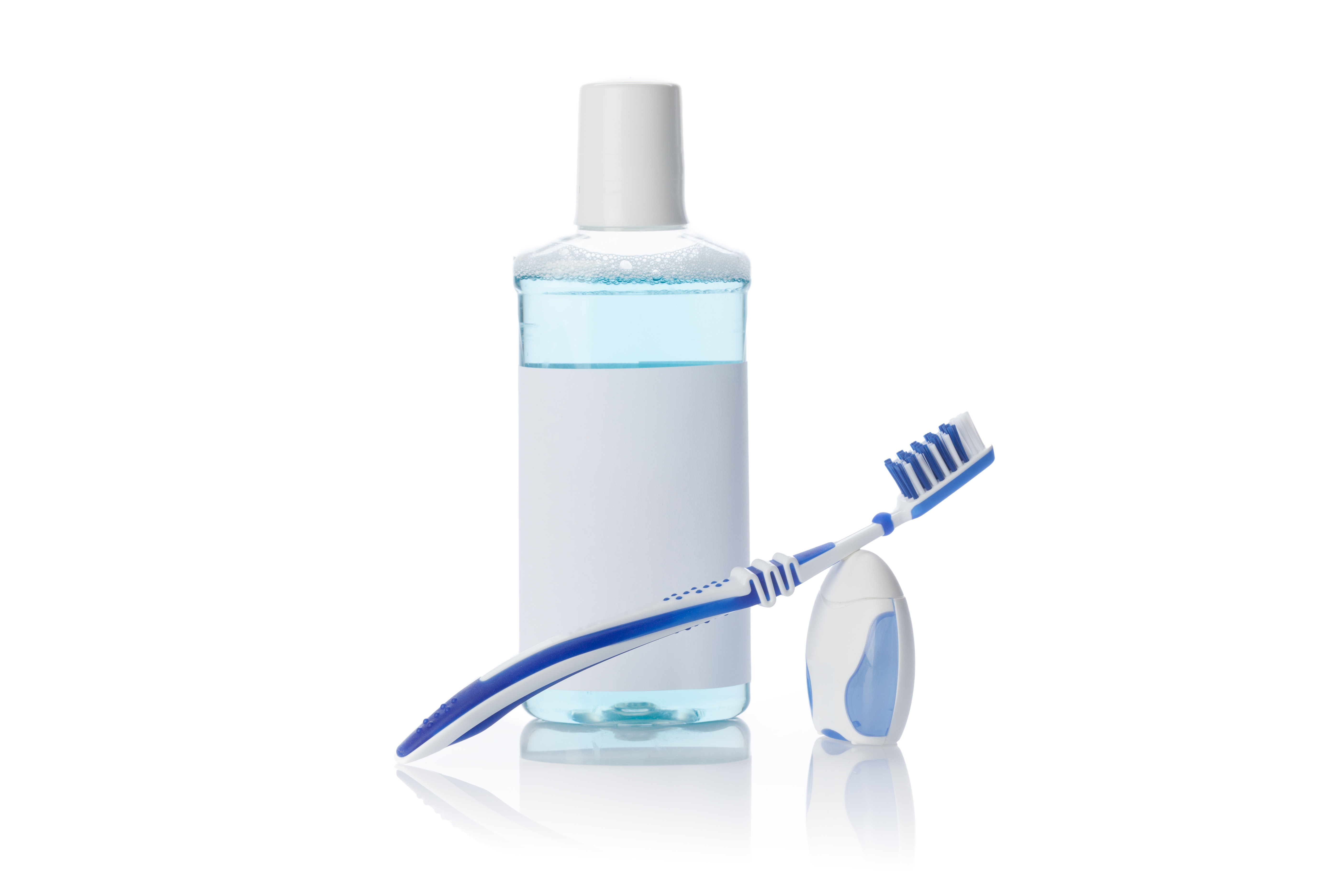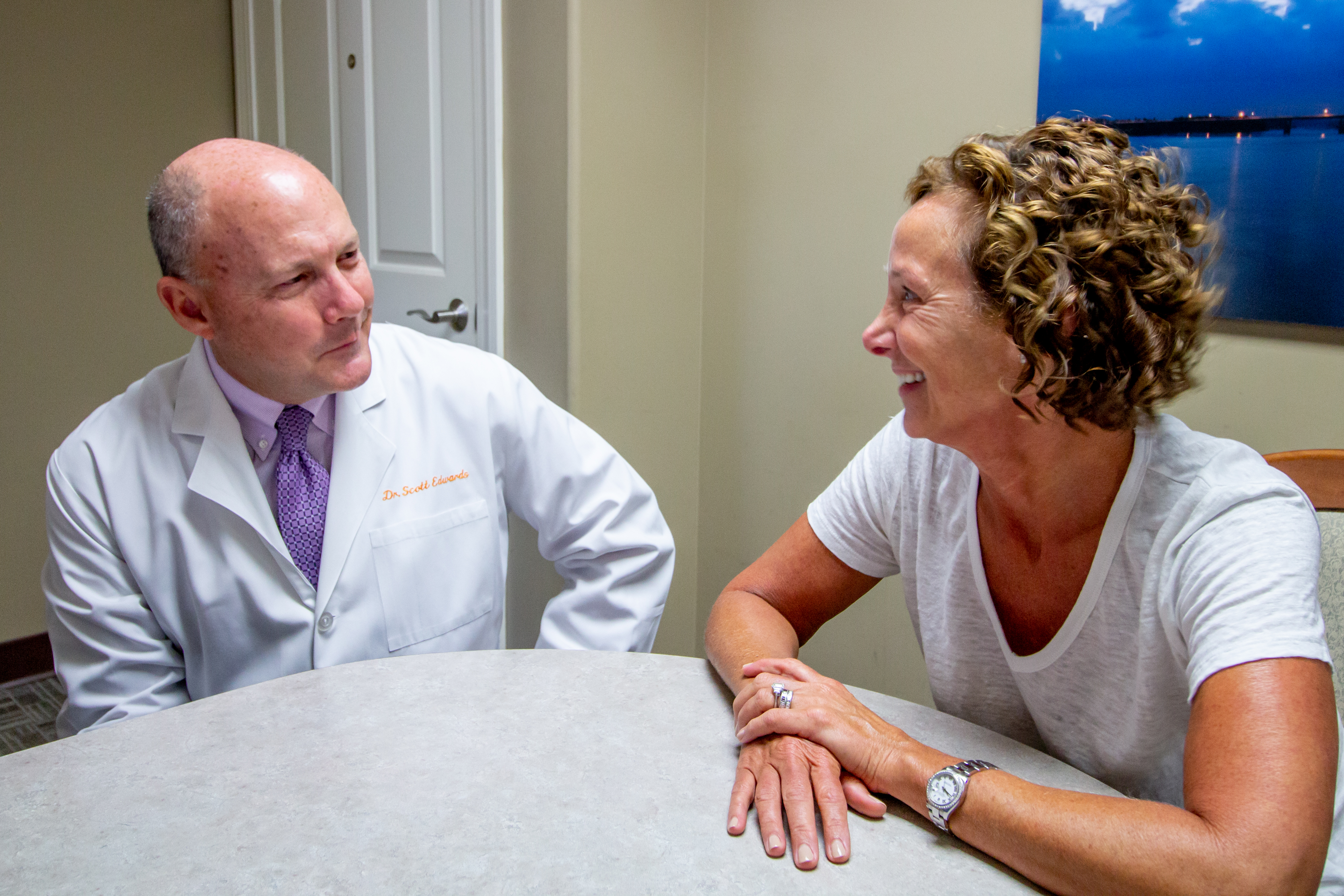Whether you’re looking for an extra clean feeling after brushing, trying to prevent cavities, or attempting to avoid gingivitis, everyone’s oral hygiene could use a little boost from time to time. When added to your regular brushing and flossing routine, mouthwash can be an effective tool in preventative dental care. But when you take a walk down the oral care aisle of any store, there are almost too many different mouthwashes on the shelves to count, so how do you know which one to choose? How will you decide which one works best for your smile? Scott Edwards Cosmetic and Family Dentistry get excited about anything that contributes to better dental health and a brighter smile! Let’s take a closer look at what mouthwash has to offer, and how you can find the right one for you.
Why should you include mouthwash in your oral hygiene routine?
Mouthwash is able to cover certain areas of the mouth that a toothbrush and floss may not be able to reach easily, like the gums and other soft tissues. For patients who have struggled with oral issues like gingivitis, periodontal disease, or chronic dry mouth, rinses can be especially helpful. Do keep in mind, however, that mouthwash shouldn’t be used as a substitute for regular brushing and flossing! It’s most effective as an addition to your daily dental routine.
What are the different types of mouthwashes?
There are two types of mouthwashes to choose from: cosmetic and therapeutic. Cosmetic rinses are great for temporarily improving your breath and creating a pleasant taste in your mouth. These rinses can’t kill the bacteria that causes bad breath, though. Therapeutic mouthwashes, on the other hand, are able to impact oral bacteria and introduce healthy nutrients to the mouth. The active ingredients in therapeutic rinses can improve issues like bad breath, gingivitis, plaque, and cavities. Some of these ingredients include:
- Cetylpyridinium chloride – to reduce bad breath
- Chlorhexidine – to help control plaque and gingivitis
- Essential oils – these can also help control plaque and gingivitis
- Fluoride – to prevent decay
- Peroxide – to help whiten the teeth
Many therapeutic rinses are fairly strong and formulated to improve specific health concerns, so they may be available by prescription only. There are a few that are available over-the-counter, however.
Who should use mouthwash? Is there anyone who shouldn’t?
Anyone over the age of six can benefit from mouthwash. There are even rinses created specifically for younger children! These are typically fluoridated and alcohol-free, but even so, children should be supervised while using mouthwash to ensure they don’t swallow it. This is actually the reason that rinses aren’t recommended for children under six years of age – they have not yet developed the reflexes that prevent them from swallowing mouthwash while it’s in their mouths. Ingesting mouthwashes can lead to nausea and vomiting, so it’s best to stick to formulas for kids and to supervise them closely when they use it.
As for teens and adults, there’s a mouthwash out there for just about everybody! Some of the most common reasons we see people choosing to include it in their oral hygiene routine are:
Prevention
Even if your brushing and flossing are flawless, you may simply be more likely to develop cavities than others. A fluoridated rinse can be beneficial since fluoride strengthens the tooth enamel for further protection against oral acids. For those dealing with deep fissures in their teeth, these rinses can also be helpful, since the liquid can access tight spots in a way toothbrushes can’t.
Fresh breath
Although truly chronic bad breath should always be examined by an experienced dental professional like Dr. Edwards, there are many rinses out there that focus on freshening breath. These tend to contain chlorine or zinc, which can give your breath a little pick-me-up without the harshness of added alcohol.
Bacteria
If you’ve found yourself struggling with bad breath, plaque buildup, or gingivitis lately, your mouth could probably benefit from a change to its bacterial environment! Antibacterial rinses are able to accomplish this by using more alcohol in their formulation, which helps to kill off any harmful bacteria that is present in the mouth at the time. Before choosing an antibacterial mouthwash, we recommend checking with Dr. Edwards to make sure you’re selecting one that is safe for your smile.
Gum disease
If you have gum disease, you are hopefully already under the care of a professional like Dr. Edwards to treat the underlying issues before the disease worsens. Mouthwash can’t treat gum disease. That said, there are rinses which can help you manage gum disease and prevent it from returning. Check with our team to see if we have rinses that can help reduce any of the redness, swelling, and bleeding that can accompany gum disease.

What are some of the other benefits of using mouthwash?
Now you know that mouthwash can be an effective tool in the fight against tooth decay and gingivitis, and can also help promote healthy teeth and gums. So what are some of the other benefits you can expect from adding mouthwash into your daily dental hygiene routine?
Better breath
Sure, it’s an obvious benefit, but an important one! Mouthwash can temporarily reduce bad breath, with some versions able to kill the bacteria that causes bad breath, and others simply masking it.
Plaque prevention
Most mouthwashes will help prevent plaque build up on your gums, in between your teeth, and on the surface of your teeth in between brushings. Although these rinses can prevent plaque from building up, they can’t reduce plaque that already exists. That’s why brushing and flossing are still the most important elements of any dental hygiene routine.
Removes food debris
Most people tend to use mouthwash after brushing, but it’s actually great for pre-brushing, or for use after you’ve eaten anything! That’s because the swish-and-rinse action can help loosen any rogue food particles in your mouth, making brushing and flossing more effective overall.
Prevent cavities
Using mouthwash regularly can reduce your risk of cavities forming, especially if you’re using a rinse that contains fluoride since it helps to strengthen your enamel. Not all mouthwashes contain fluoride, though, so be sure to check the label on your mouthwash before purchasing.

Keep your smile bright, healthy, and happy with Dr. Scott Edwards
Whatever mouthwash you choose to use, we recommend you always use rinses that have the ADA Seal of Acceptance. This seal is a promise that the rinse has been proven to be safe, effective and has been thoroughly researched. Don’t forget to follow the instructions on the bottle, too!
Using an ADA-approved mouthwash along with regular brushing and flossing can go a long way towards keeping your teeth and gums healthy and happy. We also encourage you to visit our East Memphis or Midtown office twice a year for a check-up and cleaning. Dr. Edwards will be able to monitor your overall oral health for any potential problems, and our team will remove any plaque and tartar buildup, leaving you with a bright, healthy smile! If you want to schedule a check-up or learn more about how mouthwashes can benefit your mouth, get in touch with us today!
